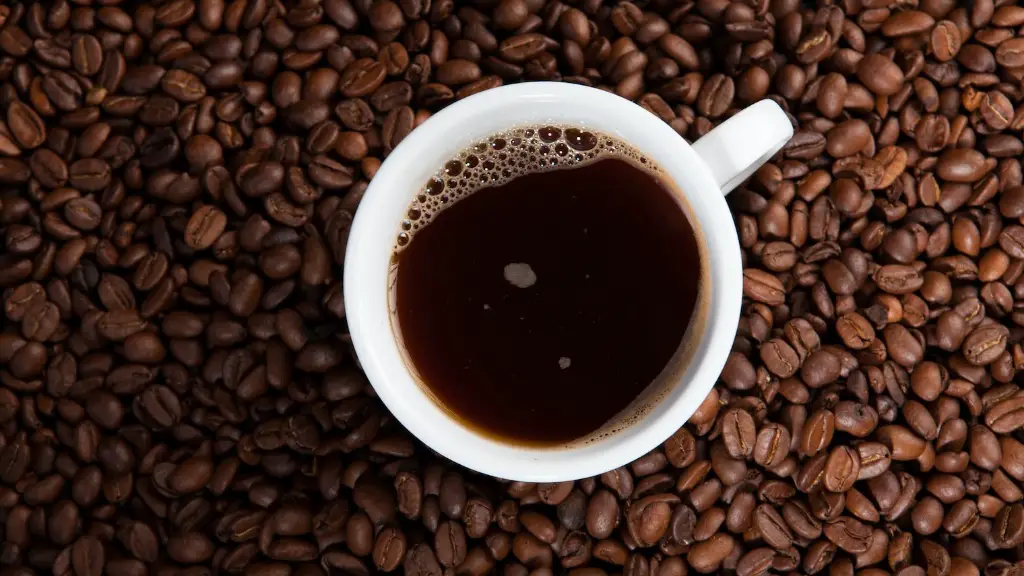Cabbage soup diet (CSD) has been designed as a short-term weight loss diet where you can supposedly lose 10 lbs or more in a week. It is basically a low calorie diet where the meal plan consists of a limited selection of low calorie foods, for 7 days in a row. The primary ingredient in CSD is cabbage soup, but it does not include all food groups, most notably dairy, grains, and fruits. Since you can only consume a limited amount of food on CSD, the question stands: can you drink coffee on the cabbage soup diet and if so, would it be beneficial for weight loss?
Coffee does have some health benefits. Moderate consumption of coffee can help reduce the risk of stroke and dementia. It may even boost energy levels and aid physical performance. However, drinking coffee when you are on a CSD may counter its effects. The goal of CSD is to reduce your daily calorie intake to just 800 to 1,300 calories, which is very low. Coffee is calorie-free, and even though it doesn’t contain sugar, there are many sugar-sweetened coffees or cappuccinos out on the market that can add extra calories to your meal plan, making it difficult to lose weight.
A study conducted by the University of Toronto found that people who consumed more coffee were more likely to eat more calories during the day. Coffee also acts as a diuretic, which means it can cause dehydration, making it difficult to follow the guidance on CSD to drink at least 8 glasses of water everyday. Furthermore, drinking coffee has been linked to developing insomnia, making it difficult to get enough rest and recover from the additional exercise that people on the CSD should do.
The question of whether or not you should drink coffee on the CSD is a difficult one. On one hand, it can provide some possible benefits. On the other hand, it can also increase your calorie intake and make it harder to follow the diet. In the end, it’s up to you to decide if coffee is worth it and how much you should drink while on the CSD.
Health Benefits of Coffee
Coffee is one of the most popular beverages and has a number of potential health benefits. One of the main potential benefits is that coffee consumption is associated with a decreased risk of stroke and dementia, according to the U.S. National Library of Medicine. The stimulating effects of coffee also can provide an energy boost and may even improve your physical performance. A study conducted by the University of Toronto found that caffeine consumption can improve alertness, reaction time and cognitive performance.
Coffee also contains some essential nutrients. People who consume more coffee are typically more likely to meet their daily neurotransmitter requirements, according to the University of Minnesota. Coffee is a great source of antioxidants, which help protect your body from oxidative damage and can reduce inflammation.
Coffee is also a great source of energy. Although it does not contain any calories, it can provide a burst of energy that can help you stay active and awake during the day. Furthermore, coffee is low in fat, which makes it a great choice for people who are trying to lose or maintain weight.
Concerns with Coffee
While there are some potential health benefits of consuming coffee, there are also some potential concerns associated with it. One of the biggest concerns is that coffee can cause dehydration–this is because it acts as a diuretic, which means it causes your body to lose more water than it would while drinking other beverages. This can make it difficult to follow the CSD guidance to drink at least 8 glasses of water a day.
Coffee can also make it difficult to get enough rest: the caffeine can make it hard to relax and go to sleep. This can be a serious concern for those on the CSD, as it is important to get enough rest to fully recover from the additional physical activity that is recommended with the Cabbage soup diet. Furthermore, drinking coffee can interfere with other medications you may be taking. Coffee can also increase your appetite, making it more difficult to stick to your set calorie intake.
Finally, some sugar-sweetened coffees or Cappuccinos are available on the market that can add extra calories to your meal plan. So if you are trying to stay within the 800 to 1,300 calorie intake on the CSD, it is important to be aware of what you are drinking and make sure that you don’t add more calories to your meal plan.
Drawbacks of Coffee on the CSD
The drawbacks of drinking coffee on the CSD are clear. As the primary goal of the Cabbage Soup diet is to reduce your calorie intake to 800-1300, drinking coffee can make it hard to stick to this calorie limit. In addition, coffee can contribute to dehydration, interfere with other medications and make it hard to get enough rest. On the other hand, drinking coffee also has its potential advantages, such as providing an energy boost, reducing the risk of stroke and dementia and providing essential nutrients.
So while drinking coffee could potentially provide some benefits, it is important to be aware of the drawbacks and to take them into consideration when deciding how much coffee you should drink while on the CSD. With coffee, as with all other foods, moderation is key and, depending on your individual health needs, you may need to reduce or even avoid coffee consumption altogether.
Conclusion
Overall, drinking coffee on the Cabbage Soup diet should be done with caution. Coffee does have some potential health benefits but can also have some drawbacks, such as interfering with medications and increasing your calorie intake. It is important to take into consideration these drawbacks and be aware of how much coffee you are consuming. If you decide to drink coffee on the CSD, moderation is key.
Expert Opinion
According to registered dietitian Tracy Lockwood Beckerman, RD, “The Cabbage Soup diet is a very restrictive diet, and it is designed to be followed for only a short period of time. During that time, coffee can be consumed in moderation to provide some potential health benefits. However, it is important to remember that excess consumption of coffee can impact the effectiveness of the diet.”
A Healthy Diet Plan
It is important to remember that the Cabbage Soup diet is a very restrictive diet, and it is not recommended to follow it for an extended period of time. To ensure a healthy and balanced diet, it is important to include all food groups. That includes fruits, vegetables, grains, dairy, proteins, and healthy fats. Additionally, it is important to get enough rest and exercise regularly.
Furthermore, it is important to watch your portion sizes and do not overindulge on any particular food. It is also important to make sure that you are drinking enough water to stay hydrated. Drinking coffee can be beneficial in moderation, but it is important to make sure that you don’t exceed what is considered to be a moderate amount.
Conclusions
Overall, the decision to drink coffee on the Cabbage Soup diet should be made with caution. While there are some potential health benefits associated with drinking coffee, being aware of the potential drawbacks is essential. Moderate consumption of coffee can help reduce the risk of stroke and dementia, but if you are trying to lose weight on CSD, excess consumption of coffee can add extra calories to your meal plan and make it difficult to reach your goal. Ultimately, it is important to remember that moderation is key and to make sure that coffee consumption fits within the diet plan.




